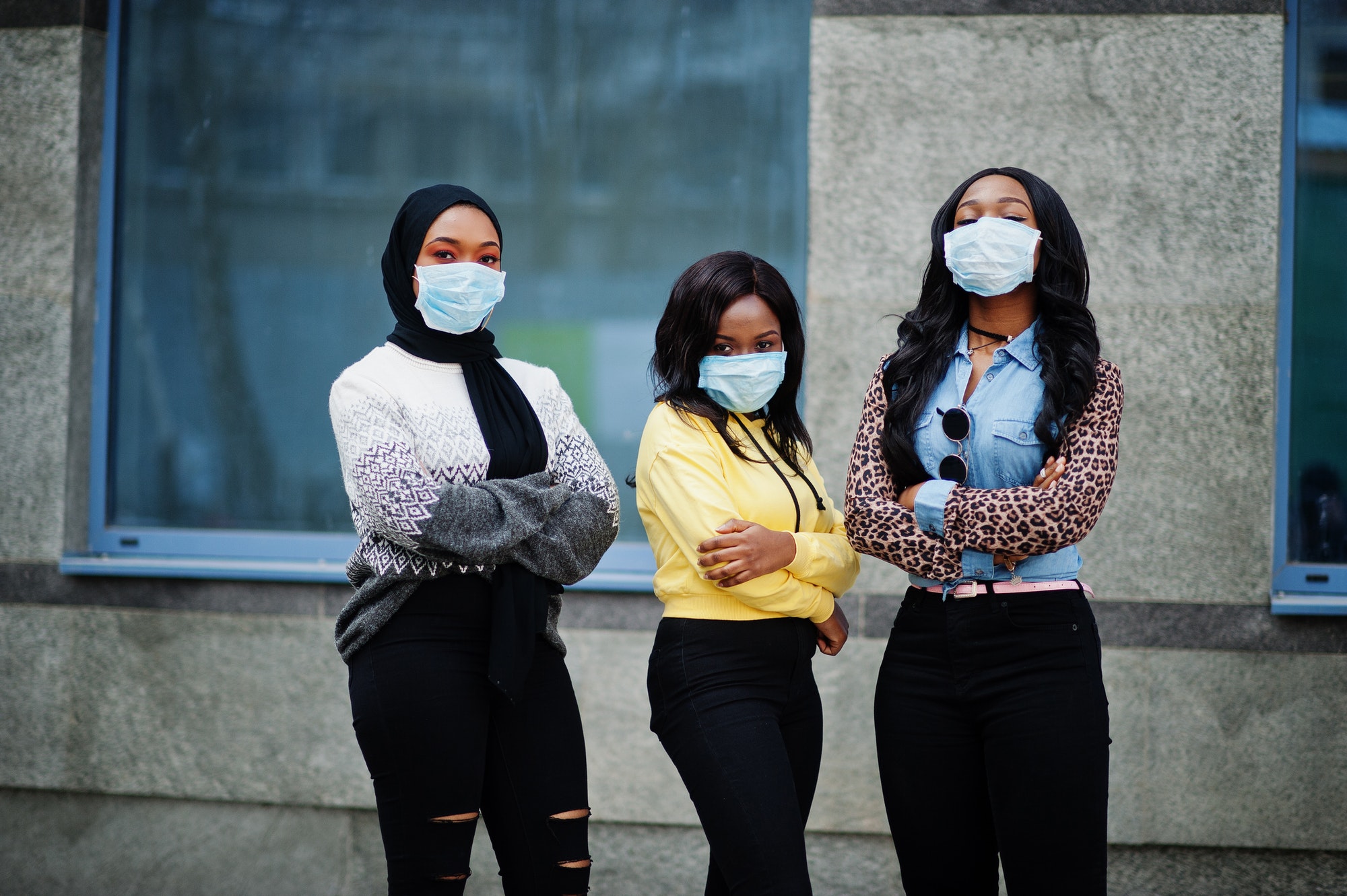The coronavirus (COVID-19) outbreak has caused our lives to change in many ways. It may cause you to feel anxious, stressed, worried, sad, bored, lonely or frustrated.
Please remember, it is OK to feel this way and that the reaction in everyone is different. You should know that, this situation is temporary and, for most of us, these difficult feelings will pass.
There are some simple things you can do to help you take care of your mental health and wellbeing during times of uncertainty. Doing these things will help you think clearly, and ensure you are able to look after yourself and those you care about.
We have listed 10 ways you can help improve your mental health and wellbeing if you are worried or anxious about the coronavirus outbreak.
It is important to follow the latest official guidance by the Nigeria Centre for Disease Control (NCDC) on staying at home and away from others to keep everyone safe.
1. Stay connected with people

Maintaining healthy relationships with people we trust is important for our mental wellbeing, so think about how you can stay in touch with friends and family while needing to stay at home.
You could try phone calls, video calls or social media instead of meeting in person – whether it’s with people you normally see often or connecting with old friends.
2. Talk about your worries

It’s normal to feel a bit worried, scared or helpless about the current situation. Remember: it is OK to share your concerns with others you trust – and doing so may help them too.
If you cannot speak to someone you know or if doing so has not helped, there are plenty of helplines you can try instead.
3. Support and help others

Helping someone else can benefit you as well as them, so try to be a little more understanding of other people’s concerns, worries or behaviours at this time.
Try to think of things you can do to help those around you. Is there a friend or family member nearby you could message? Are there any community groups you could join to support others locally?
Remember, it is important to do this in line with official coronavirus guidance to keep everyone safe.
4. Manage your media and information intake

Staying glued to the television screen or constant updates on social media can be emotionally draining. Try to limit your exposure to media by staying away at intervals. Also, false information can make you worried, it is advisable to adopt a more analytical approach as you follow news reports on coronavirus and get your information from reliable sources.
5. Look after your body

Our physical health has a big impact on how we feel. At times like these, it can be easy to fall into unhealthy patterns of behaviour that end up making you feel worse.
Try to eat healthy, well-balanced meals, drink enough water and exercise regularly. Avoid smoking or drugs, and try not to drink too much alcohol.
You can leave your house, alone or with members of your household, for 1 form of exercise a day – like a walk, run or bike ride. But make you keep a safe 2-metre distance from others. There are a few home workouts you could try.
6. Stick to the facts

Find a credible source you can trust – such as Nigerian government or the NCDC website – and fact-check information you get from newsfeeds, social media or other people.
Think about how possibly inaccurate information could affect others too. Try not to share information without fact-checking against credible sources.
You might also want to consider limiting the time you spend watching, reading or listening to coverage of the outbreak, including on social media, and think about turning off breaking-news alerts on your phone.
You could set yourself a specific time to read updates or limit yourself to a couple of checks a day.
7. Stay on top of difficult feelings

Concern about the coronavirus outbreak is perfectly normal. However, some people may experience intense anxiety that can affect their daily life.
Try to focus on the things you can control, such as your behaviour, who you speak to, and where and how often you get information.
It’s fine to acknowledge that some things are outside of your control, but if constant thoughts about coronavirus are making you feel anxious or overwhelmed, try some ideas to help manage your anxiety or call the Greyinsights helpline.
8. Do things you enjoy

If we are feeling worried, anxious or low, we might stop doing things we usually enjoy. Focusing on your favourite hobby, relaxing indoors or connecting with others can help with anxious thoughts and feelings.
If you cannot do the things you normally enjoy because you are staying at home, think about how you could adapt them, or try something new.
There are lots of free tutorials and courses online, and people are coming up with inventive new ways to do things, like hosting online pub quizzes and music concerts.
9. Focus on the present

Focusing on the present, rather than worrying about the future, can help with difficult emotions and improve our wellbeing. Relaxation techniques can also help some people deal with feelings of anxiety, or you could try our mindful breathing video.
10. Look after your sleep

Good-quality sleep makes a big difference to how we feel mentally and physically, so it is important to get enough.
Try to maintain regular sleeping patterns and keep up good sleep hygiene practices – like avoiding screens before bed, cutting back on caffeine and creating a restful environment.
Further support and advice
There are plenty of things you can do and places to get more help and support if you are struggling with your mental health. Take our assessment and contact Greyinsights for a more specific advice. If you are a parent or caregiver for a child or young person, Young Minds has guidance on talking to your child about coronavirus.
The Greyinsights mental health and wellbeing advice also have a self-assessment, and other tools you can use while staying at home.
We also have guidance and information to help others if someone you know is struggling with their mental health.
Remember, it is quite common to experience short-lived physical symptoms when you are low or anxious. Some of these, like feeling hot or short of breath, could be confused with symptoms of coronavirus.
If this happens, try to distract yourself. When you feel less anxious, see if you still have the symptoms that worried you. If you are still concerned, give us a call on +234 908 758 0003 | +234 908 758 0004.







Hi, this is a comment.
To get started with moderating, editing, and deleting comments, please visit the Comments screen in the dashboard.
Commenter avatars come from Gravatar.